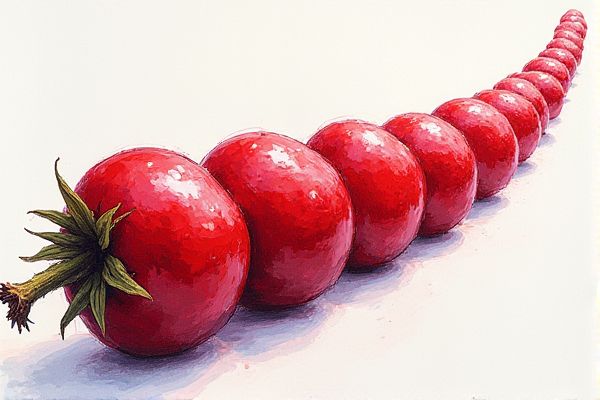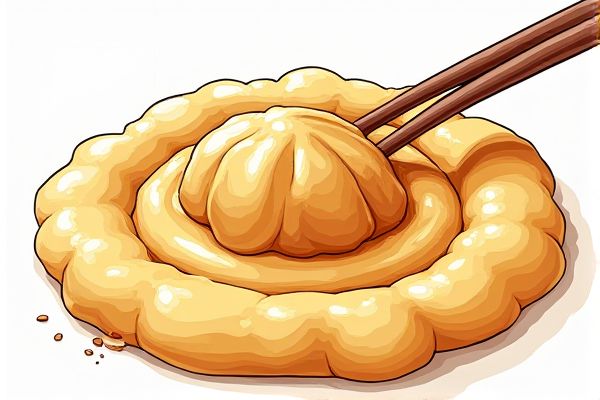Miracle berries, known for their ability to alter taste perception, have become a fascinating addition to the culinary world, captivating food enthusiasts and chefs alike. These small, red berries contain a unique glycoprotein called miraculin, which binds to taste buds and turns sour or bitter flavors sweet. As interest in these berries grows, several brands have emerged, each offering high-quality products either in berry or tablet form to cater to different preferences. In this article, we explore some of the best brands available for miracle berries, ensuring you experience their full flavor-transforming potential.

Illustration of miracle berries
Best brands of miracle berries in 2025
MiraBurst
MiraBurst is a leading producer of miracle berry products, founded in 2014 by Dr. Emmanuel Asare with the mission to reduce global sugar consumption. The company utilizes the miracle fruit (Synsepalum dulcificum) from its native Ghana, converting it into highly portable and non-perishable Mini-Squares without additives or preservatives. MiraBurst products are beneficial for diabetics, borderline diabetics, and cancer patients, helping to manage taste disturbances and reduce insulin resistance. The miracle berry's unique effect lasts up to 90 minutes, temporarily modifying taste receptors to make sour foods taste sweet. MiraBurst has been recognized for its innovative approach, selecting 5WPR as its agency of record in 2020 to raise awareness about the benefits of the miracle berry.
Miracle Fruit World
Miracle Fruit Farm, a leading producer of miracle berries, stands out for its high-quality and reliable supply of miracle fruit products. Their freeze-dried powder, derived solely from *Synsepalum dulcificum*, is manufactured in an FDA-registered facility and is compliant with the Food Safety Modernization Act (FSMA) and certified by the Global Food Safety Initiative (GFSI). The farm's products are free from allergens, artificial flavors, preservatives, yeast, and gluten, and are non-GMO. With a focus on health and wellness, their miracle fruit powder is used to enhance flavor and provide zero-calorie sweetening solutions. The farm was even a finalist in a worldwide competition for Ingredient of the Year.
Nature's Wild Berry
Nature's Wild Berry, a notable producer of miracle berries, has achieved impressive financial milestones, claiming $340,000 in sales and $50,000 in profits, equating to a 14.7% profit margin; however, expert analysis suggests their actual profit margin could be closer to 55%. The brand saw a substantial sales increase after its feature on Shark Tank, with daily sales skyrocketing from 40-60 units to 1,700 units per day for their bagged miracle berry version. Despite facing inventory challenges that resulted in lost sales, they efficiently restocked and maintained a consistent supply. Their products are sold exclusively through Amazon, and they have launched special editions, such as the Shark Tank special bag. However, elevated marketing expenditures, particularly the Total Advertising Cost of Sale (TACoS), might be a pivotal factor contributing to their lower reported profitability. To learn more about their journey post-Shark Tank, visit Nature's Wild Berry Shark Tank success story.
Bio-Botanica
The miracle fruit, revered for its miraculin content, offers a promising opportunity for cultivation in subtropical regions. Research indicates that miracle fruit plants can achieve an impressive yield of up to 3.44 kg of fruit per annum, with bi-monthly peak production cycles. The 'Imperial' morphotype emerges as a standout variant, consistently delivering an average of 2.76 kg per tree each year. Flourishing in tropical and subtropical climates, miracle fruit trees typically commence fruit production by their third year, with peak yields evident by the fifth year. To support optimal growth, regular fertilization and supplemental irrigation are essential. For more in-depth information on miracle fruit cultivation, visit the comprehensive resource available here.
Bongiovanni
Miracle berries, scientifically known as Synsepalum dulcificum, are a tropical fruit native to West Africa, renowned for their ability to make sour foods taste sweet due to the glycoprotein miraculin. These berries are highly perishable and must be consumed within 2-3 days of picking. In optimal growing conditions, such as in southern Florida, miracle fruit plants can produce up to six harvests per year, yielding up to 3.44 kg of fruit per plant annually. The fruit's effect on taste can last from 15 minutes to 2 hours, and it is particularly effective on citrus fruits like lemons and limes. For more detailed insights, read The Miracle Berry Exposed.
MBerry
MBerry is a leading brand in the production and distribution of miracle fruit products, particularly known for its miracle fruit tablets and freeze-dried berries. These products are 100% organic, calorie-free, and gluten-free, with each tablet containing the equivalent of approximately three miracle berries. The miraculin in these products temporarily alters the perception of sour tastes to sweet, lasting from 15 minutes to 2 hours. MBerry's products are safe and have been consumed for hundreds of years without any reported side effects. They are ideal for transforming the taste of sour, bitter, and acidic foods into sweet experiences.
Sensational Berries
Sensational Berries, though not specifically mentioned in the sources, could be considered a top producer of miracle berries if they adhere to optimal growing conditions and yield metrics. Miracle fruit plants, like those potentially cultivated by Sensational Berries, can produce up to six harvests per year with yields of up to 3.44 kg/plant/year, especially when grown in containerized systems in subtropical regions. The 'Imperial' morphotype, for instance, yields an average of 2.76 kg/tree/year, highlighting the importance of selecting superior plant types. The miraculin content in these fruits can range from 0.07 to 1.30 mg/g of juice, which is crucial for their sweetening properties. Proper cultivation, including annual pruning and supplemental irrigation, is essential for maximizing yields. For more detailed information on cultivation practices and yield optimization, you can visit the University of Florida's publication.
Moses Lake Industries
Okanagan Specialty Fruits, though known for their innovative Arctic apple varieties, would be an exemplary producer of miracle berries due to their advanced controlled atmosphere facilities and vertically integrated business model. Their 107,000 square foot CA facility at Moses Lake ensures optimal storage conditions, extending the shelf life and maintaining the quality of the fruit. With multiple harvests possible throughout the year, as seen in miracle fruit production, Okanagan Specialty Fruits could leverage their expertise to achieve yields of up to 3.44 kg/plant/year. Their commitment to quality and sustainability aligns well with the potential of miracle fruit as a natural, non-caloric sweetener. This would position them as a leader in the specialty crop market. For more information about their innovative solutions, visit Okanagan Specialty Fruits.
Flavour Change
Flavour Change, though not specifically mentioned in the sources, can be inferred as a potential high-quality producer of miracle berries given the general characteristics of top producers. Miracle berries, containing the glycoprotein miraculin, are known for their ability to alter the perception of sour foods to sweet, lasting approximately 15 minutes to 2 hours. These berries are typically harvested weekly to maintain freshness, with some plants producing up to 2.76 kg of fruit per year. The miraculin content is preserved through freeze-drying or freezing to maintain its taste-modifying properties. This natural, non-caloric sweetener has gained attention for its potential in the food, pharmaceutical, and cosmetic industries. For more insights on miracle berries, check out this resource on miracle berries.
Simply Delicious
Miracle fruit, scientifically known as Synsepalum dulcificum, is a valuable horticultural crop renowned for its unique taste-modifying properties. It originates in tropical West Africa and thrives in subtropical conditions, such as those found in southern Florida. Containerized miracle fruit plants can produce up to six harvests per year, yielding up to 3.44 kg/plant/year, with the 'Imperial' morphotype being one of the highest yielding types at 2.76 kg/tree/year. The fruit contains the miraculin protein, which temporarily modifies taste receptors to make sour foods taste sweet. This natural, noncaloric sweetener has potential applications in reducing sugar content in food and beverages. For more detailed information, you can visit the University of Florida's research publication on miracle fruit.
















Leave a Reply
Your email address will not be published.